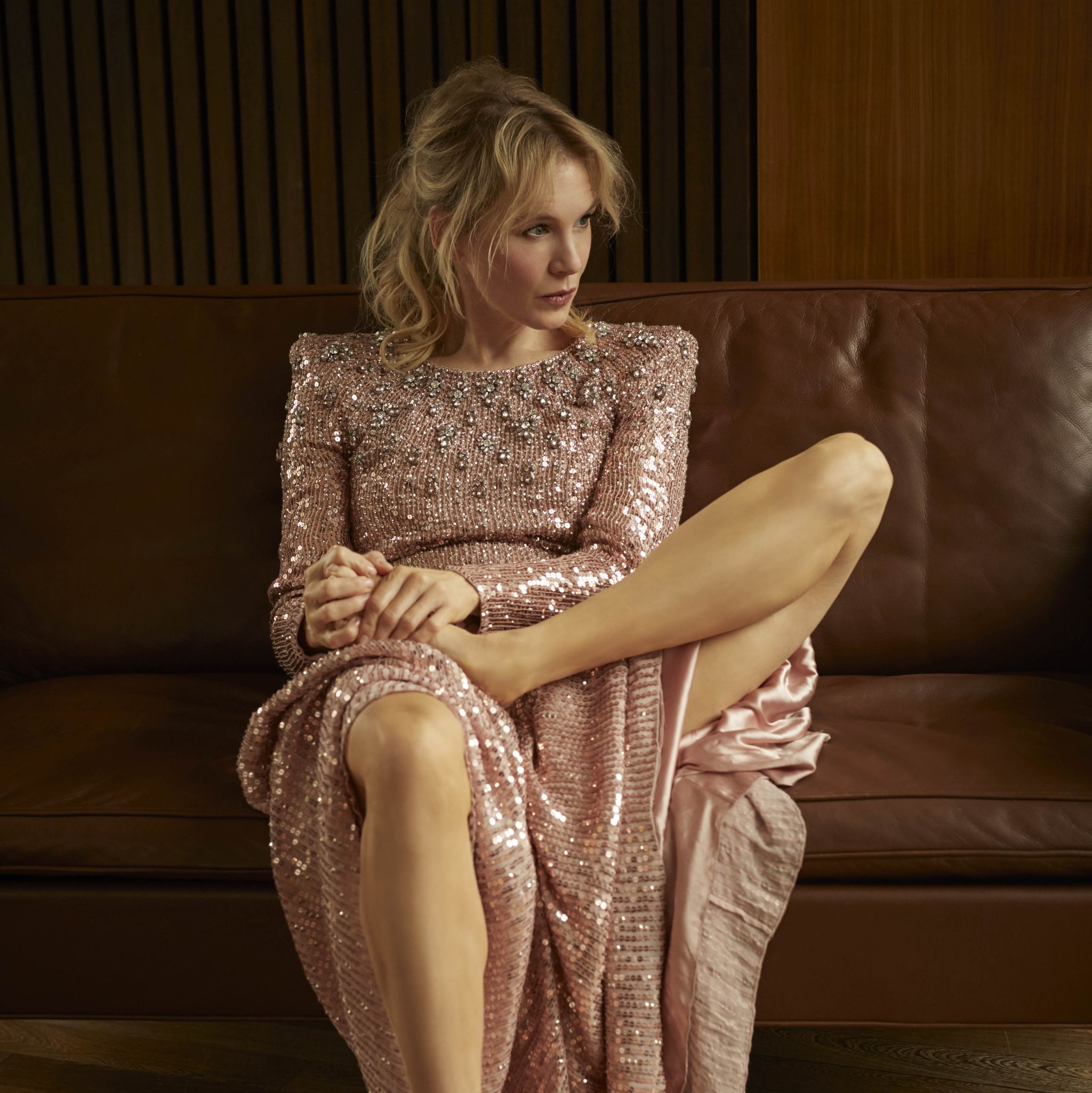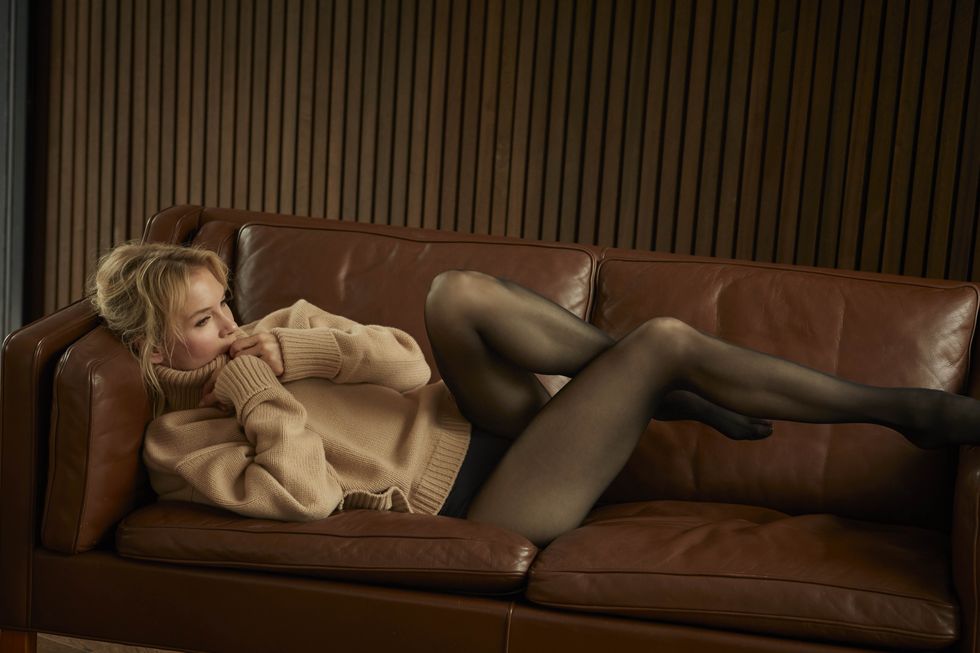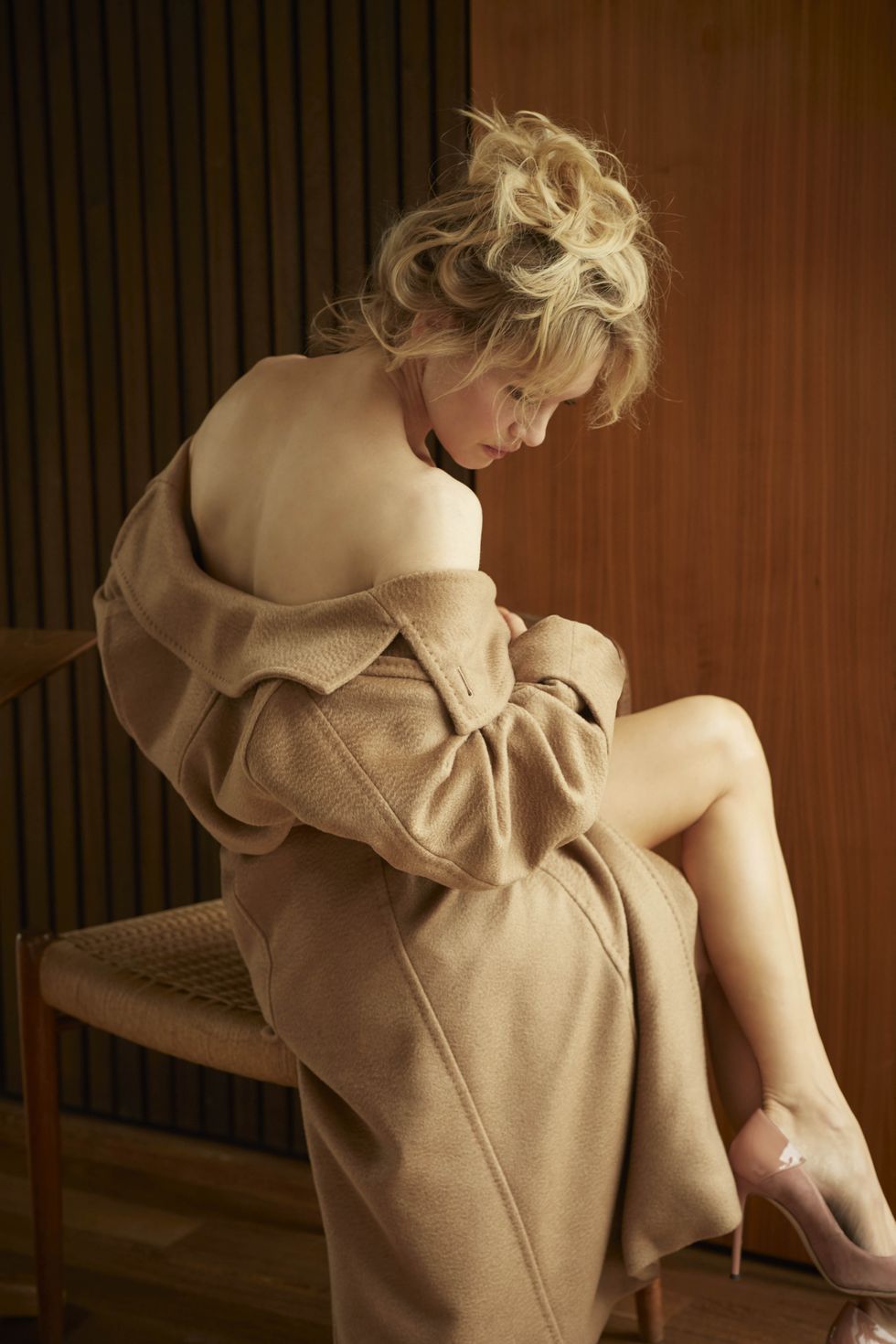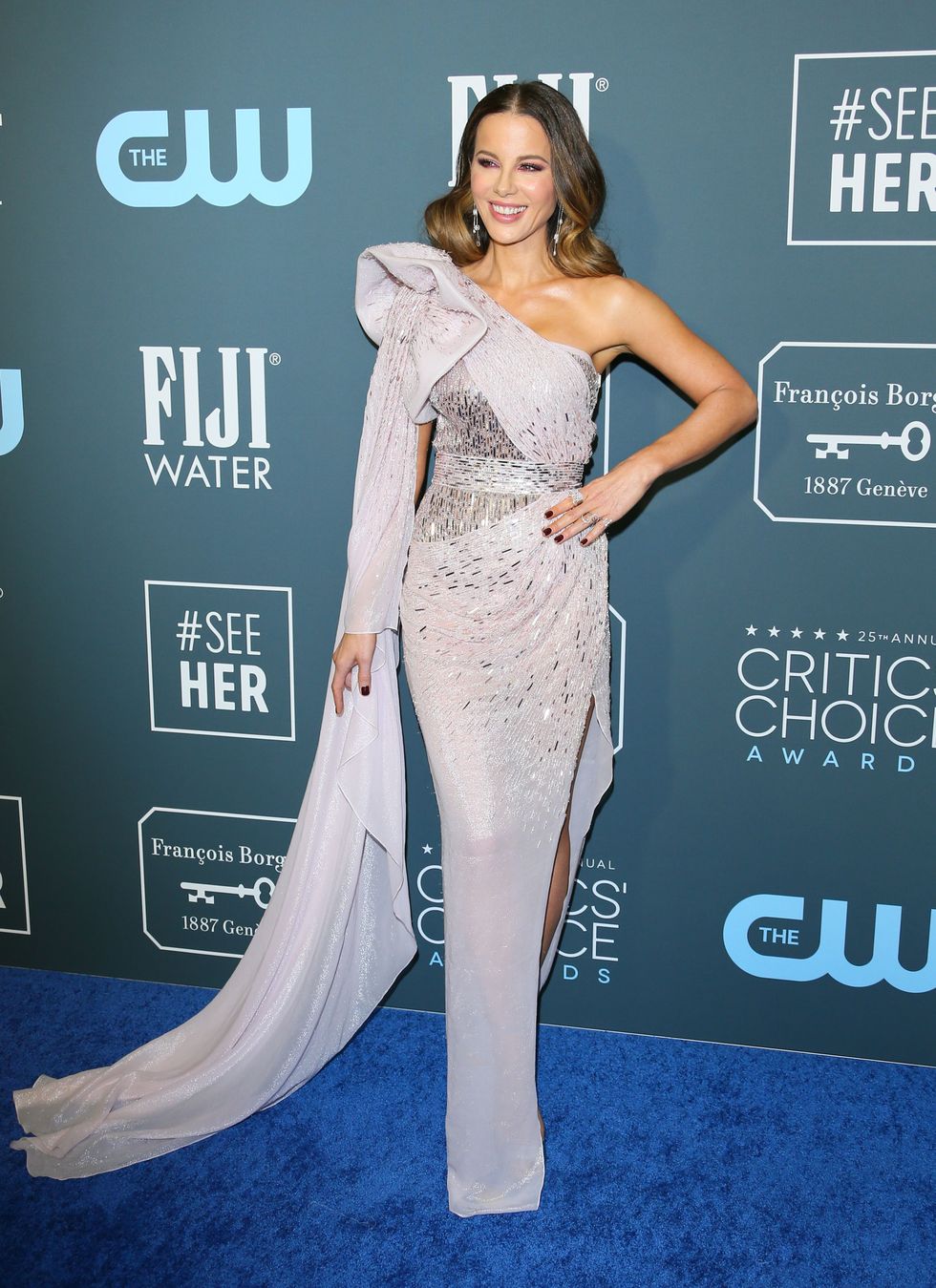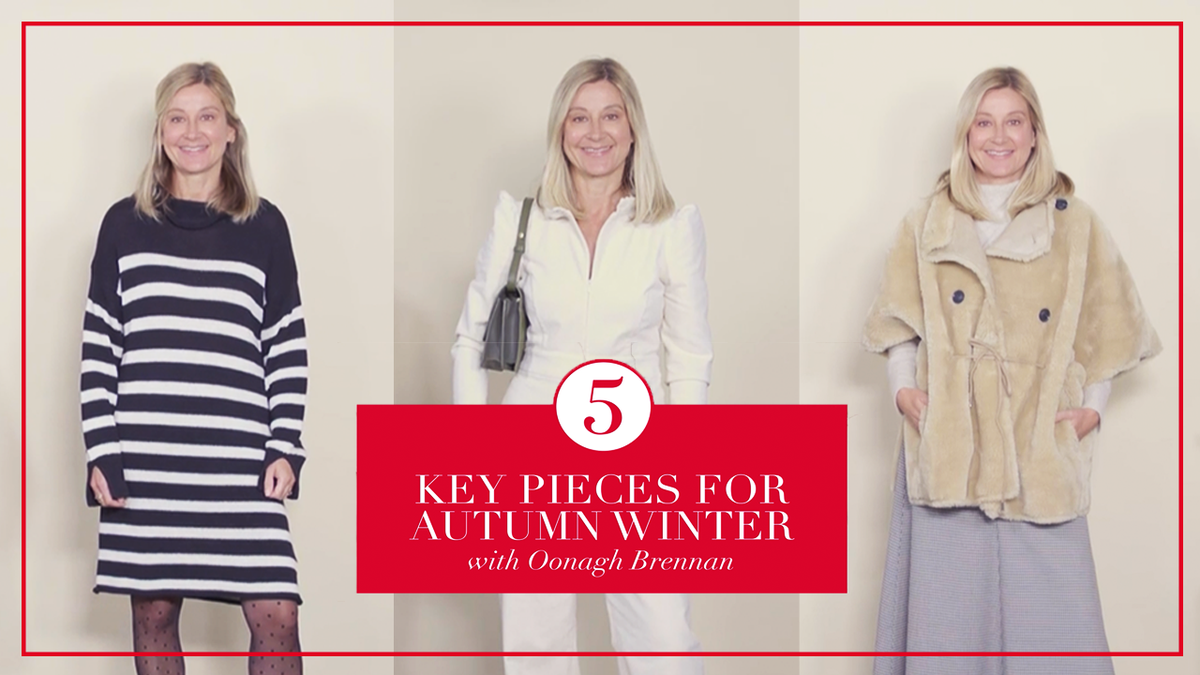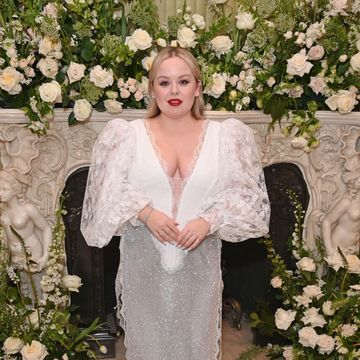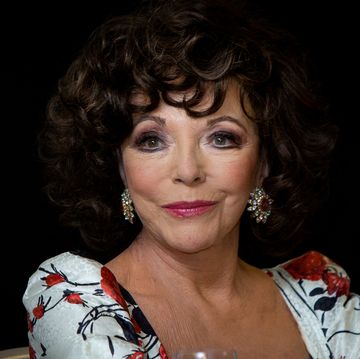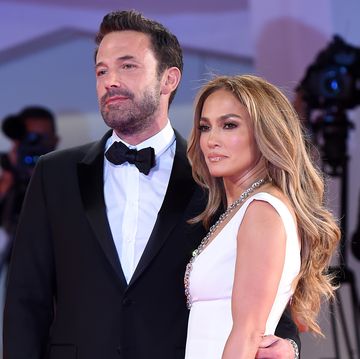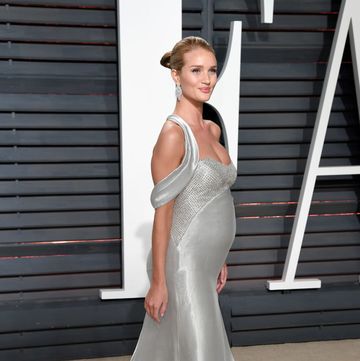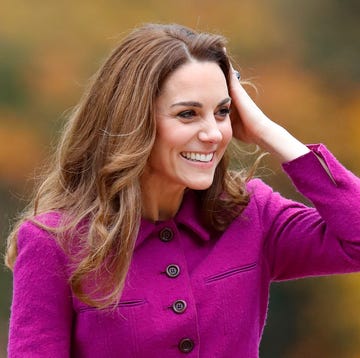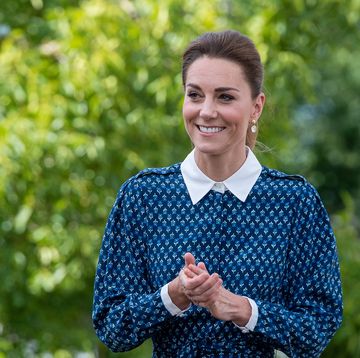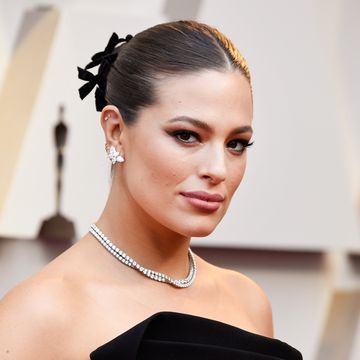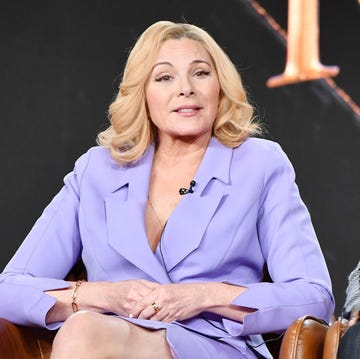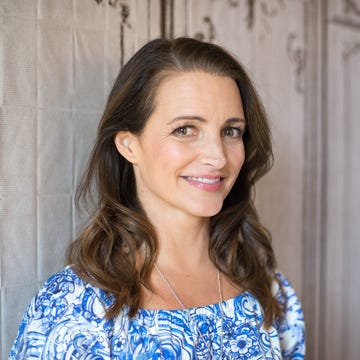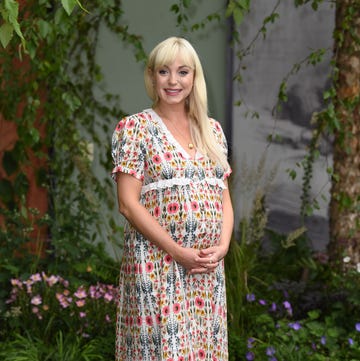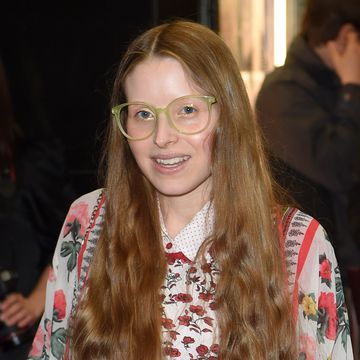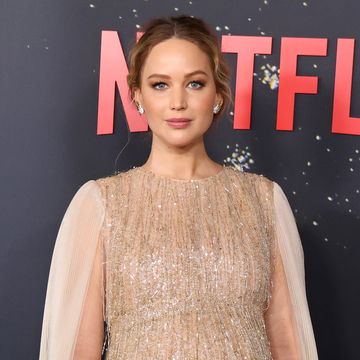Renée Zellweger picked up the best actress BAFTA last night for her portrayal of Judy Garland in the 2019 biopic, Judy. Here she speaks to Red about playing an icon...
There’s a slightly mortifying moment during my interview with Renée Zellweger, in which I, the journalist, address the Oscar-winning actor (and now four-time Oscar nominee) as Bridget. Yup, Bridget. No matter how you look at it, or what lovely conversation we’ve had, in the cold light of day, I have effectively pitched up next to HollywoodA-lister Renée Zellweger and told her that, in my eyes, she will never be anybody but Bridget Jones, the girl with the big pants.
The worst thing is, I lament to Zellweger (while clicking my fingers in frustration and shouting, ‘Renée! Renée...’), I was actually about to pay her a compliment. For a moment, Zellweger is quiet. ‘Well...wow,’ she says. And then she starts giggling. ‘I love that you did
that. It was soooo good! No, honestly,’ she adds, clasping her hands together. ‘I love it.’
Whether Zellweger genuinely enjoys the fact people find her synonymous with her most beloved character or is just amused by awkward social behaviour, she may be too sweet to say. In any case – and it’s not that I’m excusing myself – there is a certain air of girl-next-door Bridget today. (I still can’t decide what it is... the half-up, half-down hair? The self-deprecating humour?) ‘Oh, I don’t think Bridget ever really leaves,’ Zellweger says. ‘She’s always there, particularly if I have a live television event or red carpet. And I love her – she makes me laugh. I mean, she’s always a delight.’
We meet at the London hotel Zellweger is staying in on a sunny Saturday. Ultimately, we are here to discuss Judy, the long-awaited film biopic of Judy Garland in which Zellweger plays the singer in the final, testing months of her life. Set in London in the late 1960s, it covers a specific period in which Garland took up a five-week residency in the West End, in an attempt to put an end to her troubling financial circumstances and put a roof back over her children’s heads.
Directed by Rupert Goold (best known as the artistic director of the Almeida Theatre)
and written by Tom Edge (The Crown), it’s essentially an all-British production, and by Zellweger’s own admission, perhaps the most challenging film she has ever done.
‘It’s sort of been an ongoing research project for me,’ she says, sipping on a glass of mineral water. ‘There was a lot I didn’t know about Judy’s journey, so aside from the rudimentary training – looking at the way she moved, tackling the songs – there was a lot to read. A lot of discovery.’
One of the biggest shocks for Zellweger was the way Garland was treated by MGM,
the studio that signed the star up on a multi-film contract aged 13 (her big break came at 16, in The Wizard of Oz). 'Because I didn't know that they were giving her drugs by the time she was pre-pubescent. That every day there were pills: pills to keep her weight down; pills to temper her development; pills to wake her up; pills to go to sleep. I didn’t know that it was those drugs that probably led to her addiction. And so that was eye-opening,’ she says.
Having seen the film a few days before we meet, I tell her that to some degree, it made me angry. ‘Oh, definitely,’ Zellweger agrees. ‘I definitely felt like that. I guess in the same way that I felt angry when I watched the Amy documentary [the 2015 film about iconic British starAmy Winehouse, who died in 2011 aged just 27]. But also, this idea that you should be made to feel like you don’t really deserve the thing that you’ve been given. To the point where you should feel inclined to never complain. And you know, what wouldn’t it take for you to live your dream? Even if it’s destroying you.’
As a study of the film industry, there are certainly interesting parallels to be drawn between Garland’s 1930s experience and Hollywood today. But on a personal level, there were other ways Zellweger felt she could relate.
At the time Judy was first mooted, Zellweger had just returned from a self-imposed six-year career break, having decided the industry was having a more negative than positive effect on her health. ‘I was away for a while and, in all honesty, it was because I wasn’t taking care of myself,’ she explains. ‘I looked like I wasn’t taking care of myself. I felt like I wasn’t taking care of myself. And I was so bored with myself.
‘It had got to the point where I felt like I was sitting beside myself when I was filming, watching myself and rolling my eyes. And going, “Oh, shut up!”’ she laughs. ‘And, “Oh, there you are... doing that thing you do again.” And so I decided to go away. Become more interesting!’ she adds, brightly. ‘Do something else. Because, you know, I got some bad advice. I made some pretty bad choices. And, well...’ she looks at her palms, suddenly clamming up. ‘Let’s just leave it there.’
But you do know we can’t, I say. You’ve now made it all sound so terrible; really dark. Zellweger smiles. ‘Well, it was pretty dark. And sad,’ she says. ‘But I don’t look at it as wasted life, because I learned a lot from it – and that’s what I needed, I guess. I learned a lot about perspective. To recognise different patterns of my behaviour. To understand different consequences. And so I’m just grateful. Grateful to have learned and to do something different.’
What that ‘different’ is, she won’t exactly say. But somewhere in the break, she fathoms, it became less about the healing and she started to enjoy herself again. ‘So it was fun,’ she says. ‘At first, I moved to a ranch in Connecticut, then I sorted of bobbed around the East Coast, between places. And then eventually, I went back to Los Angeles and adopted some dogs. I mean, I hadn’t had dogs for 15 years. It was time.’ And then? ‘I co-wrote a script, Cinnamon Girl[which was turned into a pilot for Lifetime in 2013]. I studied a bit. I saw my family. And then I guess I got curious again.’
She was contemplating her move back into acting when she got the call to see if she wanted to make Bridget Jones’s Baby. As comebacks go, it was perfect.
Like the other instalments before it, the third film in the franchise became an international box-office hit. But if 2016 was the year that brought Zellweger back into public consciousness, 2019 proved to be the one that captured the critics.
Judy, in all its brutal honesty and splendour, has made Zellweger an awards-season contender for the first time in 15 years. We'll just have to wait and see if she takes home the best actress Oscar.
This is an abridged version of Red's interview with Renée Zellweger, which appeared in the October 2019 issue. You can subscribe to the magazine here.
Like this article? Sign up to our newsletter to get more articles like this delivered straight to your inbox.
